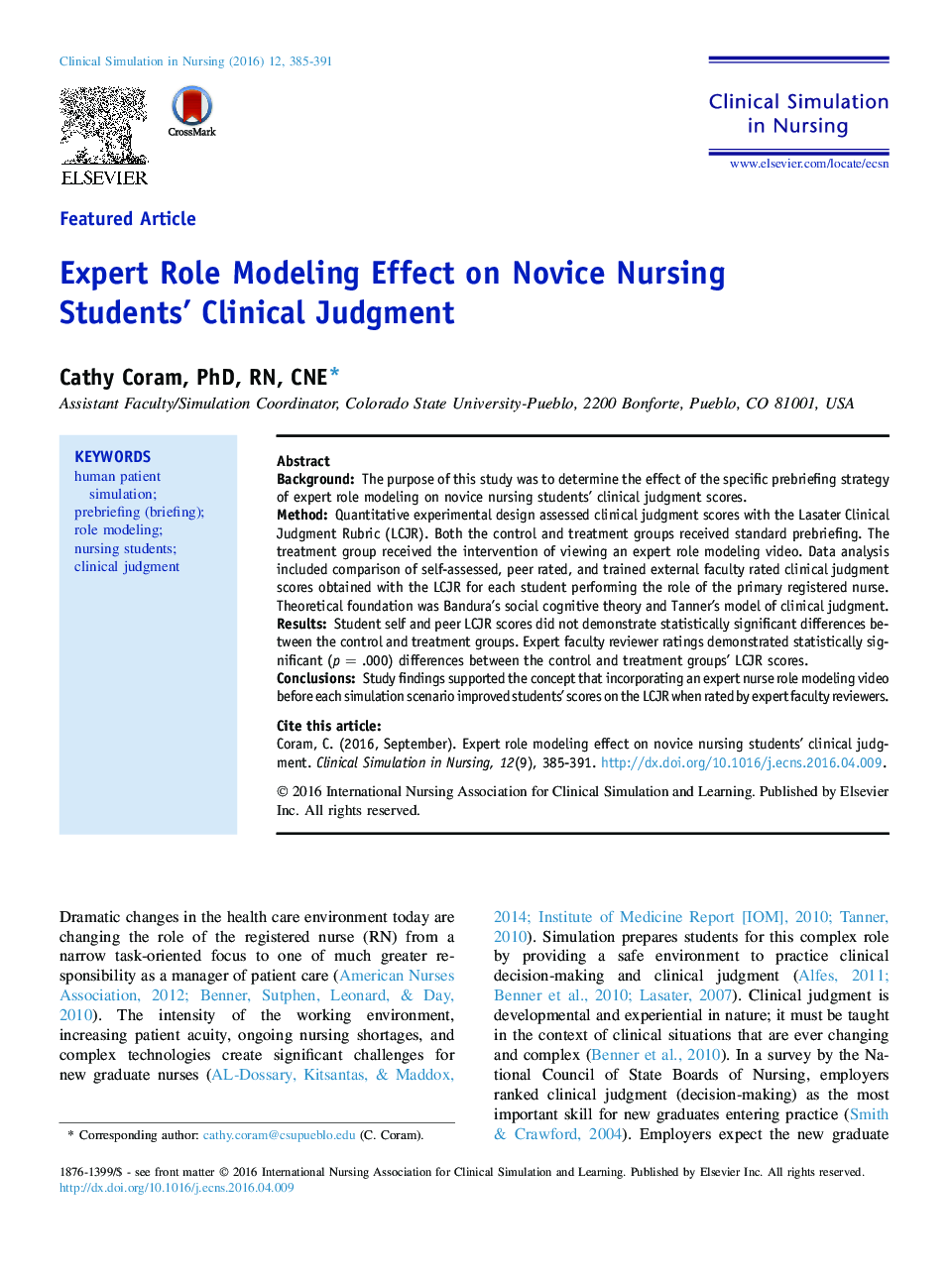| Article ID | Journal | Published Year | Pages | File Type |
|---|---|---|---|---|
| 2646877 | Clinical Simulation in Nursing | 2016 | 7 Pages |
•Results supported the concept of expert nurse role modeling in simulation.•Student self-assessed and peer rated clinical judgment scores were not significant.•Blinded faculty reviewers’ clinical judgment scores were statistically significant.
BackgroundThe purpose of this study was to determine the effect of the specific prebriefing strategy of expert role modeling on novice nursing students' clinical judgment scores.MethodQuantitative experimental design assessed clinical judgment scores with the Lasater Clinical Judgment Rubric (LCJR). Both the control and treatment groups received standard prebriefing. The treatment group received the intervention of viewing an expert role modeling video. Data analysis included comparison of self-assessed, peer rated, and trained external faculty rated clinical judgment scores obtained with the LCJR for each student performing the role of the primary registered nurse. Theoretical foundation was Bandura's social cognitive theory and Tanner's model of clinical judgment.ResultsStudent self and peer LCJR scores did not demonstrate statistically significant differences between the control and treatment groups. Expert faculty reviewer ratings demonstrated statistically significant (p = .000) differences between the control and treatment groups' LCJR scores.ConclusionsStudy findings supported the concept that incorporating an expert nurse role modeling video before each simulation scenario improved students' scores on the LCJR when rated by expert faculty reviewers.
